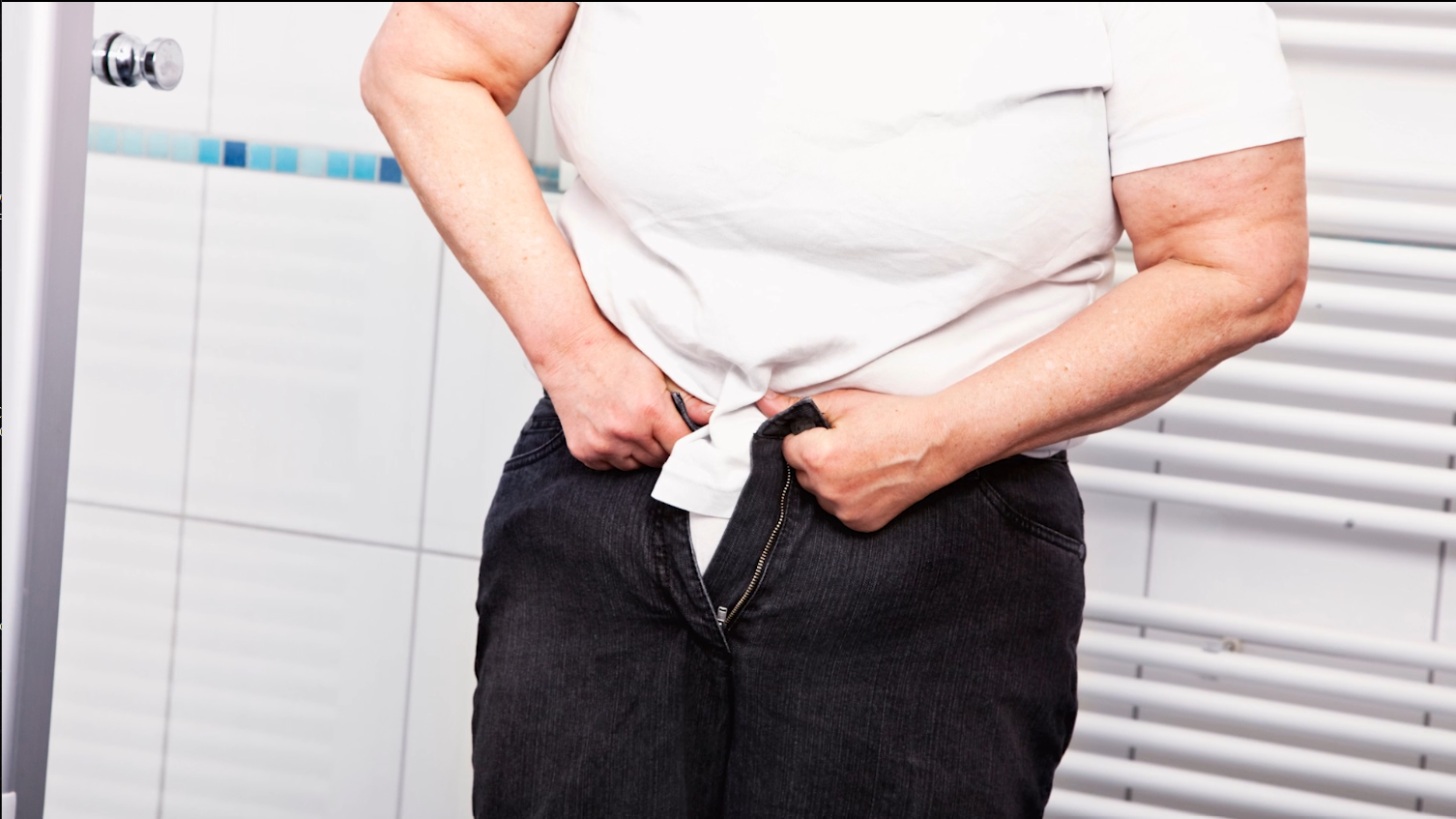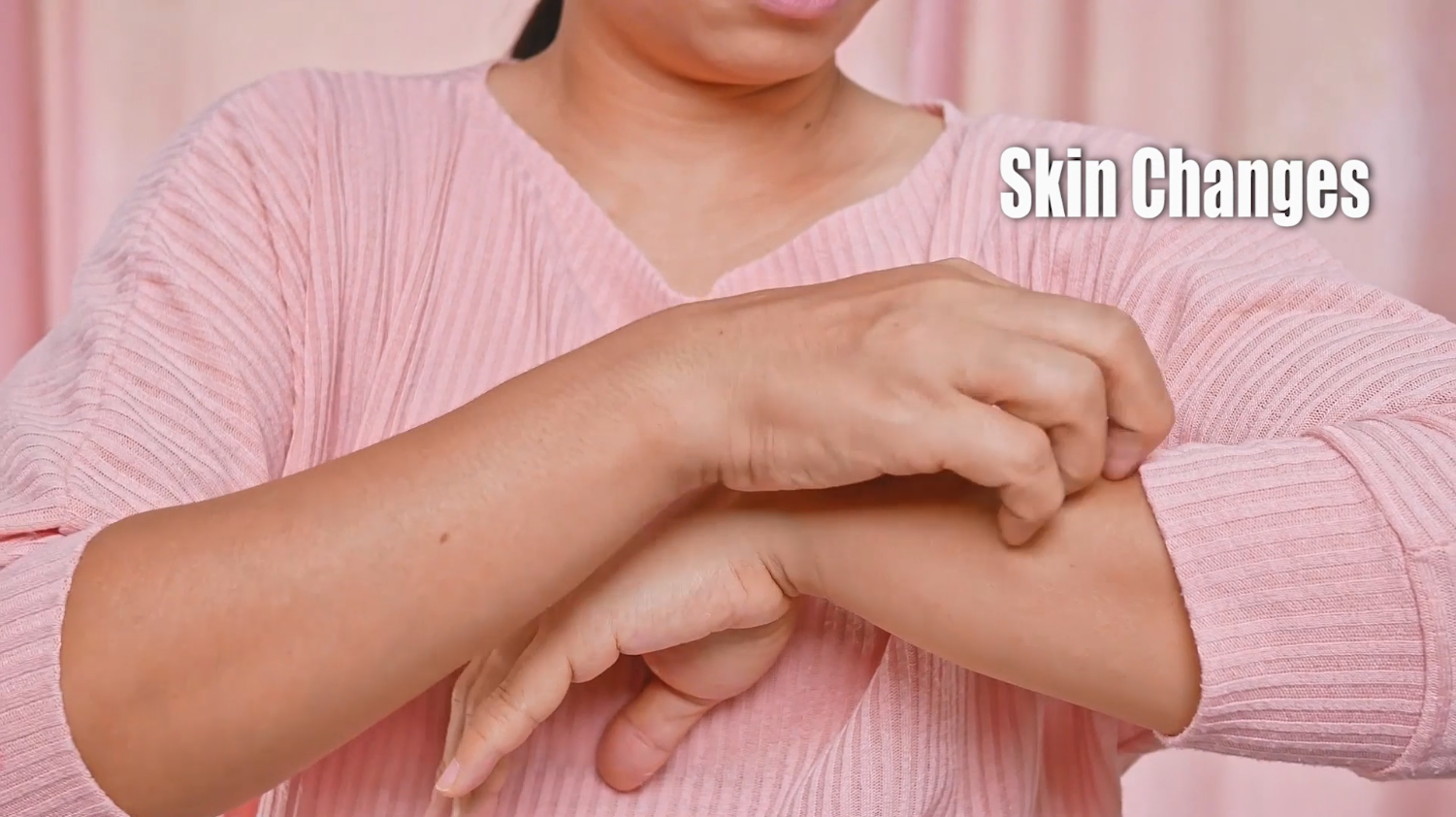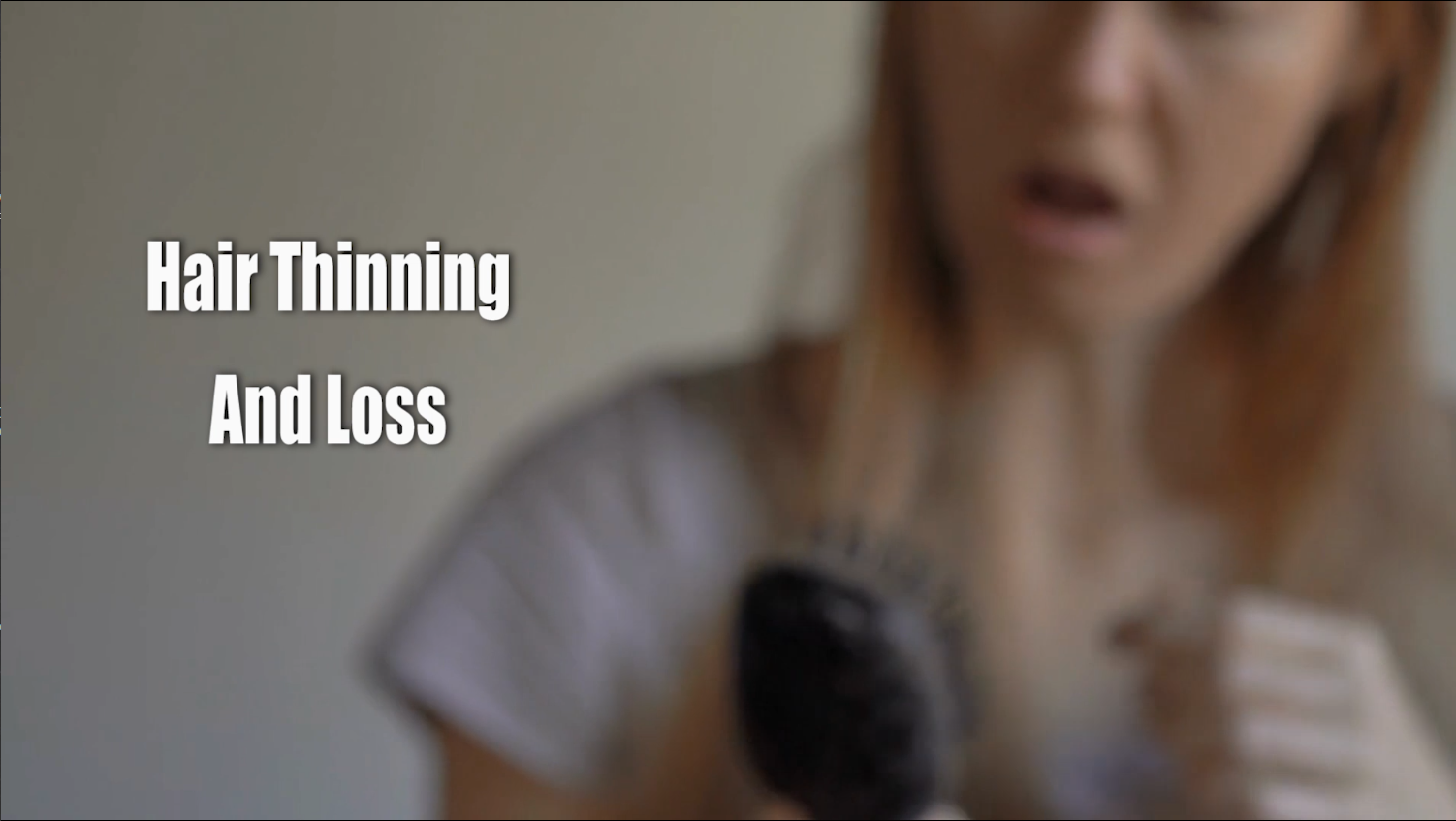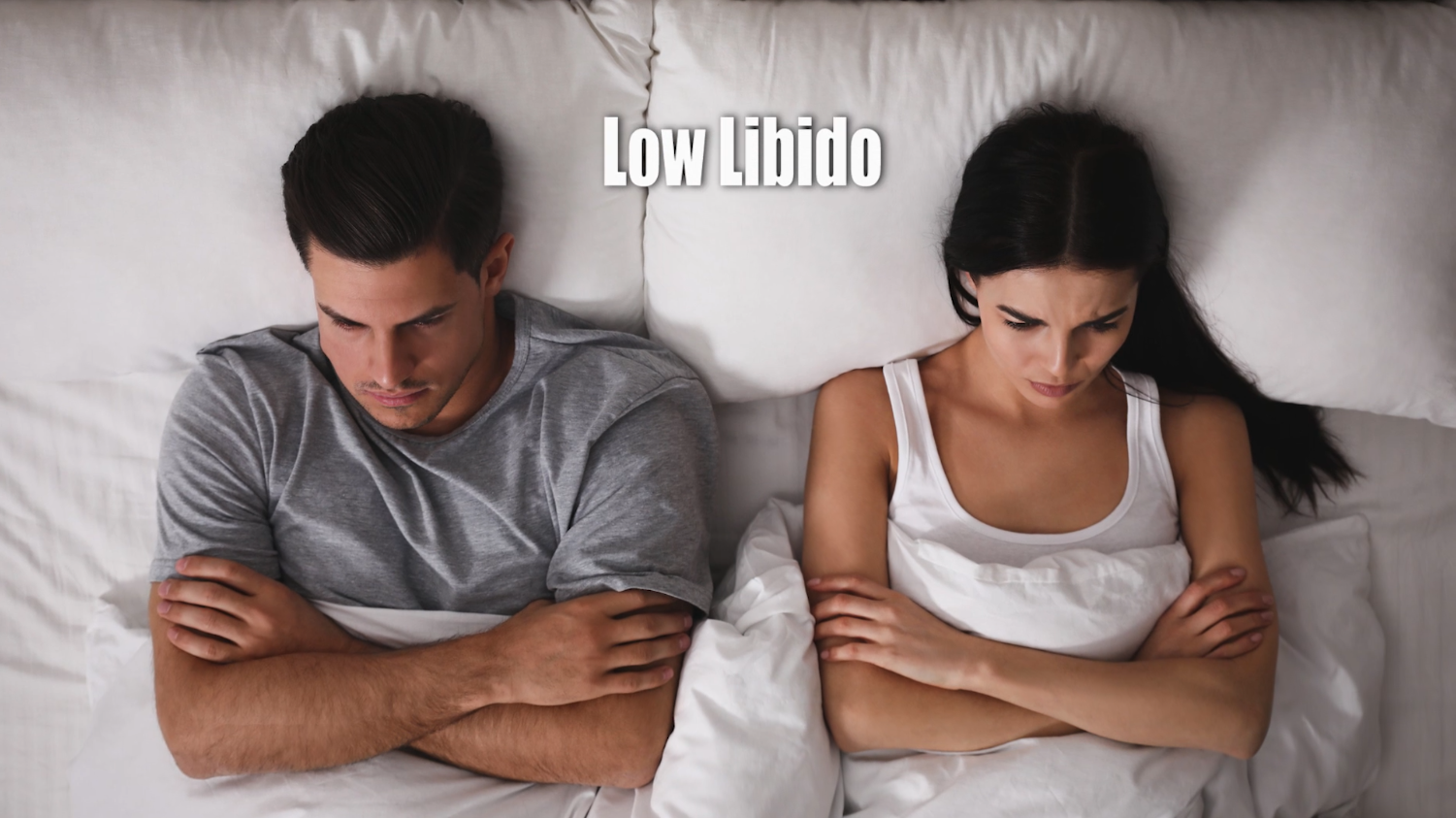9 SIGNS YOU MAY BE IN PERIMENOPAUSE - Part 2
Are you in your late 30s or 40s, wondering if you're in perimenopause?
You may be googling "perimenopause" or "hot flashes," trying to figure out where the strange changes you are experiencing are coming from. If so, this video is going to help you.
In my 9 SIGNS YOU MAY BE IN PERIMENOPAUSE - Part 1, we've already covered the first 5 common signs of perimenopause.
So if you haven't watched it yet, please check that first. Because you'll get more value once you learn how these 9 perimenopause symptoms come together, which may impact your day.
In this Part 2 video, I'm going to show you the remaining 4 symptoms.
Some are less known and have not openly discussed health symptoms until now.
#8 and #9 below are particularly valuable and important for you.
And at the end, as a bonus tip, I'm also going to share how to navigate these critical physical changes with more ease, so you don't have to waste your time guessing, suffering, and wondering what this all means.
My name is Miyako Hazama, a Menopause Energy Expert. I help busy professional women in perimenopause/menopause relieve their challenges by tapping into the little-known Asian Energenic fountain of youth.
Let's examine the remaining 4 signs of perimenopause you should look out for.
6. Weight Gain and Body Shape Change
When I did a poll among my workshop participants, this was a popular topic. And you know what? The weight gain and body shape changes you may experience in perimenopause differ from what you had when you were younger.
It's like putting on weight, particularly around the waistline, no matter how you eat healthily and have an exercise routine.

A lady I know has never had a weight problem. She has a healthy diet, with 1 cheat meal a week, and exercises 4 times per week. She was renovating her house, so she was physically active, but she was getting fatter and feeling like giving up on life.
Has that ever happened to you?
Estrogen plays a vital role in fat storage and distribution. Before perimenopause, estrogen makes you have more fat in your thighs, hips, and buttocks. During perimenopause and menopause, and after, there is less estrogen in your body. This makes you have more fat overall, especially around your middle.
Hormonal changes can cause weight gain during perimenopause, but it is not the only factor. Other things like aging and lifestyle could contribute to weight gain.
Muscle mass typically diminishes with age while fat increases. Losing this valuable asset slows down metabolism.
Also, westernized dietary patterns and emotional eating can make you add fat around your waist while feeling upset or frustrated. So be careful.
Now let's go to the next one. It's getting more interesting because not many people talk about it.
7. Skin Changes (Itchy Skin/Dry Skin)
Have you recently noticed any changes in your skin? It could be your skin getting dry or feeling itchy everywhere. Even your nails now look different?

A client told me that she had an itchy scalp and itchy skin and went to a dermatologist. Then she was prescribed an antibiotic over six weeks, but nothing seemed to help.
Some have itchy skin on their legs, and when it happens during the night, you'll only have a few hours of sleep. I won't talk much about it now, but even your nails could look different.
You may wonder, "Are these skin changes come with perimenopause?"
Skin clinic specialists say that many women are not aware that it's a perimenopausal state they are in.
During this phase, there can be a surge of reproductive hormones, which fluctuate wildly.
The skin can become more sensitive and react differently to treatments and products. The symptoms will differ depending on whether there are high or low estrogen levels.
Estrogen is essential for skin health because it helps the body produce natural oils and collagen.
A caution for you is don't scratch. It may cause a rash or skin infection
Let's get into the two last symptoms, #8 and #9, that are particularly important to know and are less spoken about.
8. Hair Thinning and Loss
Do you ever look in your shower drain or hairbrush and are shocked to see the clumps of hair?
We all know hair loss or balding can happen to men in midlife, but we don't often talk about it as much when it comes to women, right?
Because it's a sensitive issue and has an impact on women in a different way, it's damaging to our self-confidence.
But you know what? Data shows that about half of all women will have some element of hair loss by the age of 50. So this is a widespread problem.
Experts at Mayo Clinic reported that the typical female pattern could be a widening of the part and a central thinning of the hair.

Hormones cause hair loss during perimenopause. Estrogen and progesterone help hair grow faster and stay on the head longer. When estrogen and progesterone levels go down, hair growth slows, and more hair falls out.
Because we lose hair every day, it can be difficult to tell when actual hair loss begins. So you can be suspicious if you see more hair than usual fall out daily or if you regularly wear your hair in a ponytail but notice that the ponytail has gotten smaller.
You also want to know that your stress can be a big problem and cause hair loss.
Also, many articles reveal that the pandemic seems to have increased stress levels, leading to hair loss for many women. And age is getting younger in the late 20s or early 30s.
9. Low Libido
Not here's the last, most delicate, and interesting symptom that we don't openly share, even among our closest friends. This is so touchy and personal, right?
But I need to share this because many women suffer from this sensitive issue, and there's no one to talk to.
It could be that you don't want to be bothered because it simply hurts!
But I want to share this story I heard from a woman. She said, "My husband and I struggled because he thought I was not attracted to him anymore, which was not the case. I just had no interest in it. He felt so hurt and rejected but was very patient. He would ask me what was wrong, and I had no answer. I blamed myself, thought something was wrong with me, and felt guilty."

If you have symptoms, like hot flashes and night sweats, that clearly show up on the surface, it could be easy for your partner to understand what you are going through.
But when it only comes with symptoms like mood swings or anxiety that are difficult for people to notice from your appearance, there is a problem.
Like in her case, your partner could feel rejected, and there's now a strange emotional distance between the two of you.
You might also feel afraid that your sex drive won't return because you've passed prime, which makes you sad. Again, this prevalent trapped feeling puts you in a dark place.
What you need to understand is during perimenopause, sexual arousal, and desire may change.
During late perimenopause, especially when estrogen levels are falling, this can cause vaginal tissue to become thinner and drier. You could have itching and irritation, and it may also be a source of pain during intercourse. This can lead to a decline in sexual desire.
There are some safe vaginal moisturizers to increase vaginal moisture or lubricants that can make intercourse less painful. So don't ever blame yourself. You're not alone, and it's not your fault.
A Recap of the 9 Signs of Perimenopause
Now we've covered all 4 signs of perimenopause in this Part 2. With the first five signs I covered in Part 1, you need to know 9 signs of perimenopause.
Let's recap quickly:
- Hot flashes and Night sweats
- Sleep
- Mood Swings and Anxiety
- Fatigue
- Migraine Headaches
- Weight Gain and Body Shape Change
- Skin Changes (Itchy Skin/Dry Skin)
- Hair Thinning and Loss
- Low Libido
Have you noticed any of these happening to you?
What other symptoms have you been struggling with? Remember, there is no one universal menopause syndrome, and every woman is different.
These 9 symptoms seem a lot. But in fact, some report shows that there are 34 symptoms of menopause, and I cannot possibly cover all in this Part 2 video series.
Bonus Tip
The purpose of sharing these annoying symptoms is not to make you hopeless and sad. It's the opposite.
I want you to know that you are not alone on this perimenopausal journey, and you can be prepared and get the support you need.
Let's move to the bonus tip I promised you at the beginning.
Because you may be wondering," Now that I know this, what can I do about it?" And I don't want to leave you feeling lost.
As you may or may not know, there are various types of solutions out there.
I can't go into detail about how I can help you, but for this bonus tip, I want you to know that you can navigate these significant physical changes wisely.
You can stay with more ease, so you don't have to waste your time guessing, suffering, and wondering what this all means.
Key takeaways
- The information you pick will decide your journey
Select a reliable source of information and find a safe environment where you can communicate with other women to get inspired and help, not something that pulls you down and feeling vulnerable.
- Hormonal change is not your enemy
You want to understand how women's body works. But digging into too much in detail about your hormones' work won't help you - wasting your time. Even doctors and scientists don't know all our hormones' mysterious wonders.
- Your body has natural healing power
I couldn't share my story in this post, but I'm 59, and honestly, I haven't experienced any perimenopause or menopause symptoms.
Yes, it's possible to stay out of or relieve your perimenopausal symptom naturally without using hormone treatment or relying on supplementation. That's what I live with, and I help other women do exactly the same by applying the secrets I learned from my mentor 30 years ago based on ancient Asian wisdom. So they can show up as they want, even during the delicate transitional period.
If this video resonates with you, here's what I want you to know:
I created Menopause Wonder YouTube Channel as a sacred space where women can share openly, knowing they are not alone.
It's time we talk about solutions and how to live our prime years with more ease & joy.
Sending great love to you, and remember that you deserve to enjoy and thrive in your prime years without losing your true self.
References
- “Weight Management Module for Perimenopausal Women: A Practical Guide for Gynecologists: A Review of the Literature” by National Center for Biotechnology Information
(https://www.ncbi.nlm.nih.gov/pmc/articles/PMC6947726/) - “Menopause Weight Gain: Stop the Middle Age Spread” by Mayo Clinic
(https://www.mayoclinic.org/healthy-lifestyle/womens-health/in-depth/menopause-weight-gain/art-20046058) - “Headaches” by the North American Menopause Society
(https://www.menopause.org/for-women/menopauseflashes/women's-health-and-menopause/headaches)


